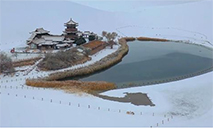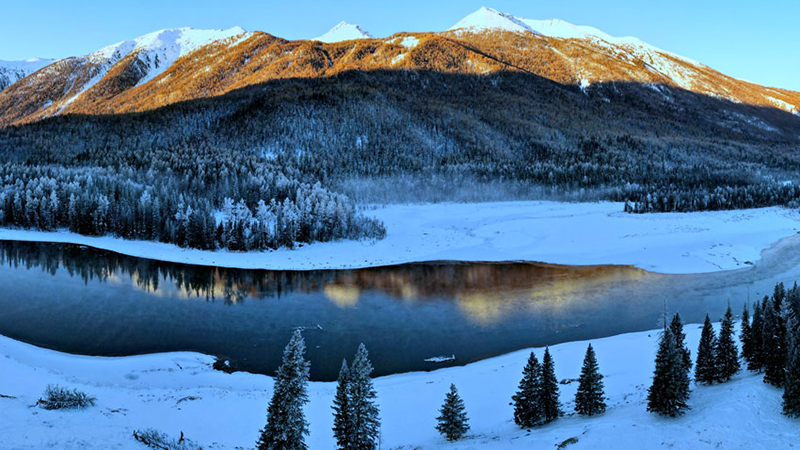Iranian nuke talks restart in Vienna amid uncertainties, challenges
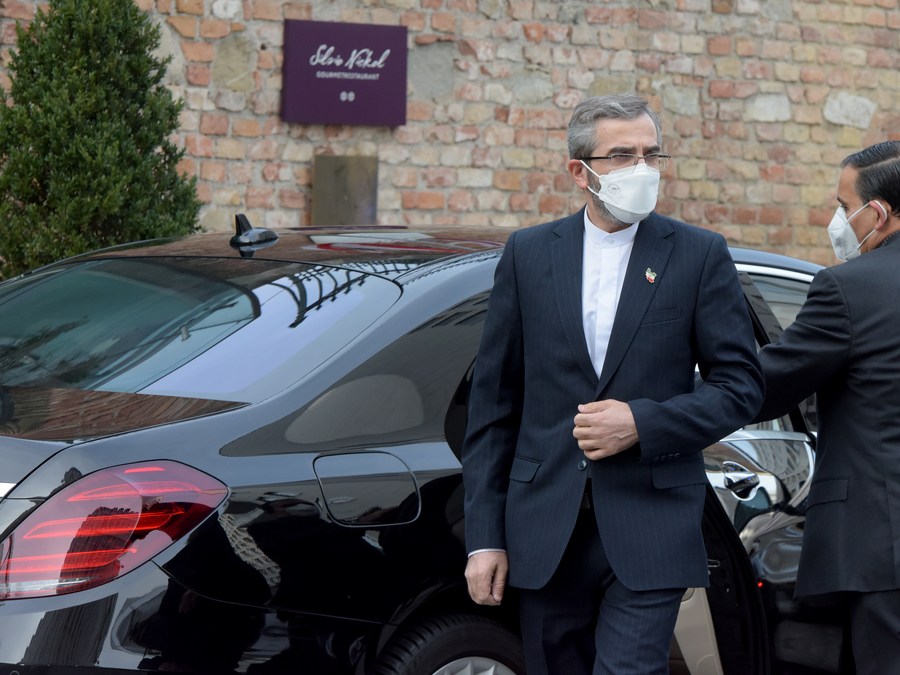
Iran's chief nuclear negotiator Ali Bagheri Kani arrives at the venue of the new round of Iranian nuclear deal talks in Vienna, Austria, Nov. 29, 2021. (Xinhua/Guo Chen)
As the Iranian nuclear deal talks resumed after a five-month pause, uncertainty appears to be the only certainty for the negotiations.
TEHRAN, Nov. 29 (Xinhua) -- Talks aimed at salvaging the 2015 Iranian nuclear deal resumed on Monday in Austria's capital Vienna after a five-month pause, where uncertainty appears to be the only certainty for the prospects of the negotiations.
Ahead of the talks, the verbal duel continued between Tehran and Washington to accuse each other of being responsible for no final conclusion of the nuclear negotiations.
Meanwhile, the recent visit to Iran by International Atomic Energy Agency (IAEA) Director General Rafael Grossi has triggered a renewed round of Western pressure on Iran, casting a shadow over the diplomatic efforts in Vienna.
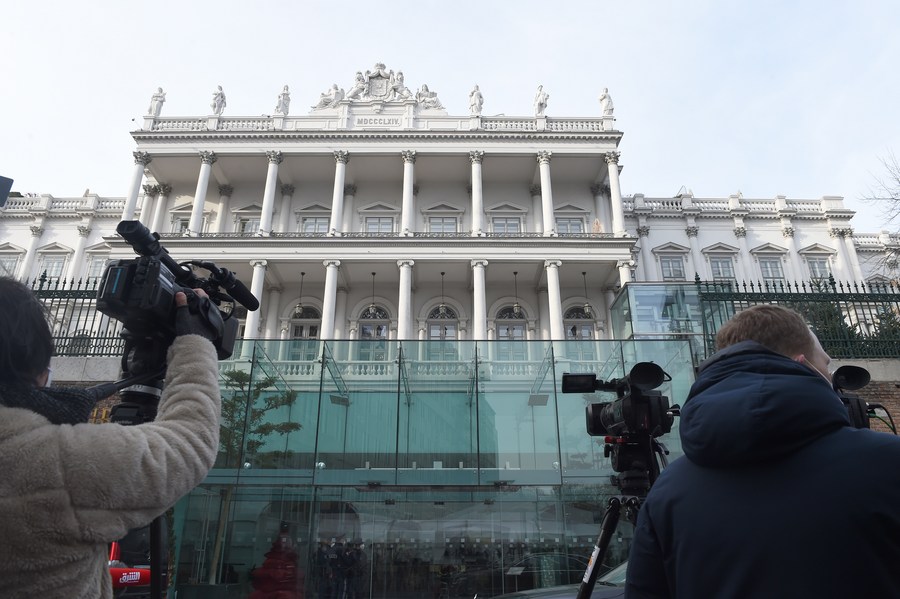
Members of the press wait outside the venue of the new round of Iranian nuclear deal talks in Vienna, Austria, Nov. 29, 2021.(Xinhua/Guo Chen)
"GOOD AGREEMENT"
In his latest remarks about the talks on the 2015 nuclear deal, officially known as the Joint Comprehensive Plan of Action (JCPOA), Iranian Foreign Minister Hossein Amir Abdollahian said in a video released on Saturday that Iran is "serious about negotiating to reach an agreement," adding his country has made all necessary arrangements to reach a "good agreement" if the other parties "return to their full commitments."
Amir Abdollahian was apparently responding to the question raised by U.S. Secretary of State Antony Blinken: "Whether Iran is willing to come back to engage in a meaningful way?"
Furthermore, the top Iranian diplomat recently criticized Washington's "contradictory behavior," noting this hostile move presented a major obstacle to the Vienna talks.
He noted in his phone conversation with foreign counterparts that the White House has imposed sanctions on Iranian individuals and companies in recent weeks while declaring its readiness to return to the JCPOA.
To elaborate on the stance of the new Iranian government, Amir Abdollahian said it is "a pragmatic and results-oriented administration" and wants "a good and verifiable agreement," highlighting the importance of lifting sanctions and normalizing foreign trade.
In an interview with Iran's news network Press TV, Abdolreza Hadizadeh, an international relations expert, said Iran's new diplomatic apparatus has "introduced pragmatism as its main feature in future negotiations, as opposed to the 'talk for the sake of talk' approach."
WESTERN PRESSURE
After the meeting with Amir Abdollahian and Mohammad Eslami, head of the Atomic Energy Organization of Iran, on Tuesday in Tehran, Grossi said on Wednesday that his "inconclusive" trip has not led to an agreement with Iran over the outstanding issues, including the renewed access to an Iranian nuclear site.
Such a pessimistic comment, as the Tehran Times said in an opinion article published on Friday, "appears to have provided Washington and other European capitals with diplomatic ammunition to ratchet up their hostile rhetoric against Iran."
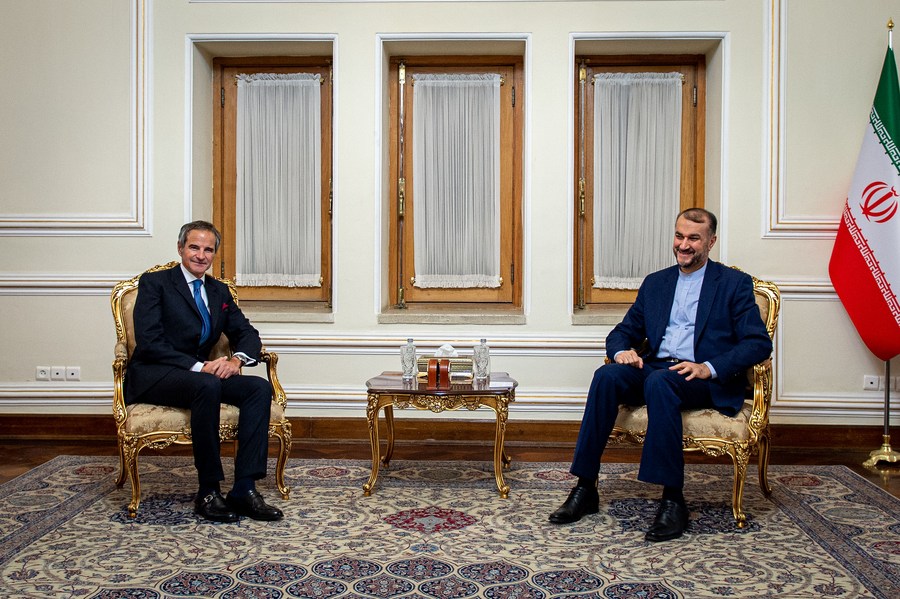
Iranian Foreign Minister Hossein Amir Abdollahian (R) meets with the International Atomic Energy Agency (IAEA) Director General Rafael Grossi in Tehran, Iran, on Nov. 23, 2021. (Xinhua)
The U.S. Mission to International Organizations in Vienna on Thursday threatened an escalation with Iran at the UN nuclear watchdog, saying if Iran's non-cooperation is not immediately remedied, including on the issues raised under the JCPOA agenda, the IAEA Board of Governors will "have no choice but to reconvene in extraordinary session before the end of this year in order to address the crisis."
More bluntly, Robert Malley, U.S. special envoy to Iran, said in an interview on Saturday that "if that's Iran's approach, which is to try to use the negotiations as a cover for an accelerated nuclear program, and as I say, drag its feet at the nuclear table, we will have to respond in a way that is not our preference."
"Nobody should be surprised if at that point there is increased pressure on Iran," said Malley, who leads the U.S. negotiating team in indirect talks with Iran in Vienna.
In a joint statement by Britain, France, and Germany, the three European countries also "very strongly urge Iran to reinstate IAEA access and cooperate in full."
Following the latest pressure drive, Iranian Foreign Ministry Spokesman Saeed Khatibzadeh said on Monday that the incumbent U.S. government should stop following the maximum pressure policy by former President Donald Trump.
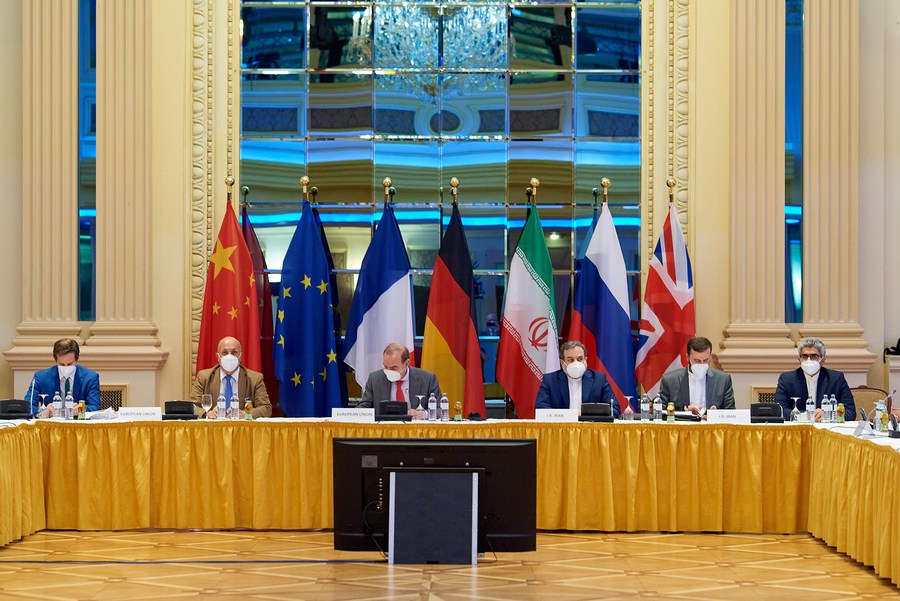
Photo taken on June 20, 2021 shows a meeting of the Joint Comprehensive Plan of Action (JCPOA) Joint Commission in Vienna, Austria. (EU Delegation Vienna/Handout via Xinhua)
CHALLENGES AHEAD
Iranian analysts pointed out that such "diplomatic blackmail" will lead nowhere. In a recent interview with the IRNA News Agency, Hamid Reza Asefi, a former Iranian diplomat, said the negotiations will be concluded when Iran's interests are ensured.
"It is not possible for Iran to sign something that does not serve its interests under pressure," said Asefi, who served as Foreign Ministry spokesman and Iran's ambassador to France.
As the Vienna talks resume, many observers, especially those from the West, held low expectations of the seventh round of negotiations.
The two sides may just be too far apart, Michael Singh, former senior director for Middle East affairs at the U.S. National Security Council, was quoted as saying by Bloomberg.
Among the challenges ahead, Iran's demand that the United States provide "guarantees" of not withdrawing from a possible agreement in the future will predictably be rejected by Washington.
It is also reported that the Western diplomats worried they cannot reach an agreement with Tehran's new negotiating team, if the Iranian side insists on the lifting of all U.S. and EU sanctions imposed since 2017, including those unrelated to its nuclear program.
For the Iranians, as put by Iran's chief nuclear negotiator Ali Bagheri Kani, the fretted Western countries, in particular the United States, will "hijack" the JCPOA platform to force Iran to make more concessions in areas unrelated to the nuclear issue, such as Iran's missile program and regional influence.
Under these circumstances, the White House was weighing a less ambitious interim nuclear deal to buy more time for negotiations, according to the U.S. media.
"This plan can either be an opportunity to make a decision in a clear atmosphere, or be a media trap," Asefi said.
Photos
Related Stories
Copyright © 2021 People's Daily Online. All Rights Reserved.







